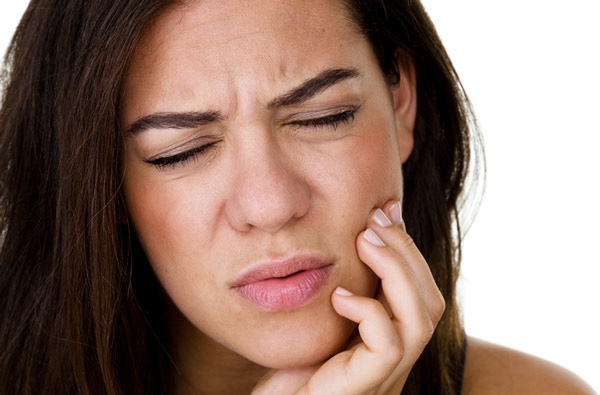TMJ
Blue Bell, PA
 TMJ disorders affect many Americans. Many people have jaw pain caused by a jaw joint disorder. Ear, neck, and head pain can be caused by TMJ disorders as well. Therefore, many people that suffer from TMJ want to know if TMJ is curable. In a nutshell, it depends. Temporomandibular joint disorders (TMDs) are a group of illnesses that cause discomfort in the jaw joint. It is entirely dependent on what is causing the discomfort in the first place and if it is completely curable. Some types of TMJ can be treated, while others can only be controlled. The dental specialists Dr. Robbin Cramer and Dr. Craig Cramer and the rest of the office team at Cramer Dental have extensive training and experience in the treatment of TMJ disorders and TMD symptoms. TMJ disorders affect many Americans. Many people have jaw pain caused by a jaw joint disorder. Ear, neck, and head pain can be caused by TMJ disorders as well. Therefore, many people that suffer from TMJ want to know if TMJ is curable. In a nutshell, it depends. Temporomandibular joint disorders (TMDs) are a group of illnesses that cause discomfort in the jaw joint. It is entirely dependent on what is causing the discomfort in the first place and if it is completely curable. Some types of TMJ can be treated, while others can only be controlled. The dental specialists Dr. Robbin Cramer and Dr. Craig Cramer and the rest of the office team at Cramer Dental have extensive training and experience in the treatment of TMJ disorders and TMD symptoms.
Causes of TMJ
There are several causes of temporomandibular joint pain, but regardless of the cause, TMJ covers any pain related to the jaw's temporomandibular joint. A variety of conditions can cause TMJ including arthritis, teeth clenching and grinding, injury to the jaw, misaligned or eroded disks, and diseases of the connective tissues.
What Types of TMJ Can Be Cured?
Currently, arthritis has no cure. Consequently, there isn’t a cure for a TMJ disorder that’s caused by arthritis. Connective tissue diseases and eroded disks may also have no cure. TMJ pain can be managed, however. There may be a cure for TMJ pain caused by chronic teeth grinding or clenching, or by an injury.
The length of time it takes to recover from an injury is determined by its degree. Depending on how thoroughly the injury heals, there may be no lasting repercussions. It's possible that the discomfort will fade when the jaw damage heals. In the event of a severe injury, you may be in discomfort for an extended period. If teeth clenching and grinding are causing your TMJ discomfort, you may stop it by stopping the behavior completely. We can help with that. The discomfort should go away as soon as the action that is causing it ends.
TMJ Physical Therapy and Surgery
There are a few types of TMJ for which physical therapy can cure the cause and reduce your pain. Whatever the cause of TMJ pain, there are exercises that can help you. Physical therapy can even assist if your TMJ discomfort is caused by a displaced disk. Physical therapy, depending on the reason for your TMJ discomfort, is often a better therapeutic choice than splints. Any self-help exercise should be reviewed with your therapist.
Exercises may not work for all TMJ disorders. Furthermore, you may do them poorly, exacerbating your problem. Physical therapists guarantee that each activity is completed appropriately under the supervision of a specialist. Following that, the physical therapist will be able to recommend exercises and how frequently they should be completed at home.
TMJ surgery is considered the last option. Even yet, many medical professionals do not suggest surgery. If the joint has an interior issue, surgical intervention may be required. In a part of TMJ surgery, called arthroscopy, the surgeon may reposition the joint or do anything else the surgeon thinks might be useful.
Come to our office at Cramer Dental to learn more about TMJ and the available treatments. Get in touch with us today by calling (484) 370-4010. |